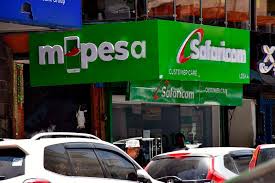Safaricom is beginning to feel the pressure in Kenya’s mobile money industry, as new data shows a steady drop in M-Pesa’s market share. For many years, M-Pesa has led the mobile money space in Kenya, but the latest statistics from the Communications Authority of Kenya (CA) show that things are slowly changing.
According to the CA’s Quarter Three sector report for the financial year ending March 2025, M-Pesa’s market share has dropped to 90.8 percent. This marks a decline from the 94.9 percent it held during the same quarter in 2024. On the other hand, Airtel Money has continued to grow, increasing its share of the market to 9.1 percent. This is a big jump compared to the 5.1 percent it recorded one year earlier.
The report explained that the shift is due to stiffer competition in the market and better services being offered by Airtel Money. The company has improved its service quality, introduced more user-friendly features, and grown its agent network across the country. These efforts have helped it attract more customers who are looking for alternatives to M-Pesa.
Mobile money subscriptions in Kenya also grew during the quarter. The report revealed that subscriptions increased by 7.3 percent to reach 45.4 million. This shows that more Kenyans are relying on mobile money for their daily transactions. Many people use their phones to send and receive money, pay bills, buy goods, and even access credit or insurance.
The growth in mobile money use is also connected to the increase in mobile phone users in the country. The number of active SIM card subscriptions rose to 76.2 million, which reflects a mobile penetration rate of 145.3 percent. This means that many people own more than one SIM card, possibly using them for different networks and services.
Since its launch in 2007, M-Pesa has been the dominant player in Kenya’s mobile financial services sector. It became popular because it allowed people to send and receive money easily using their phones, even in areas where banks were not present. Over the years, it has added more features, including savings, loans, and merchant payments.
However, the market is now shifting. Other players, especially Airtel Money, are starting to gain ground by offering competitive services. This includes lower transaction costs, wider reach, and faster response times. Airtel’s efforts to understand what customers want and meet their needs seem to be paying off.
The Communications Authority pointed out in its report that this growing competition is good for consumers. It gives people more choices and could lead to better prices, improved services, and new digital financial solutions. The authority also noted that the mobile money market in Kenya is evolving, and companies that want to stay ahead must keep innovating and improving their services.
Industry experts say that if the current trend continues, M-Pesa may lose more market share, especially as other fintech companies continue to enter the space. These new players are using technology to offer flexible, fast, and affordable financial services. Many of them target young people and small business owners who want convenient and low-cost options.
Kenya’s digital economy is growing fast, and mobile money is a key part of that growth. As more people go online and use their phones for banking, shopping, and other services, competition among service providers will likely increase. For now, Safaricom’s M-Pesa remains the leader, but the gap is narrowing, and the market is no longer as one-sided as it once was.
